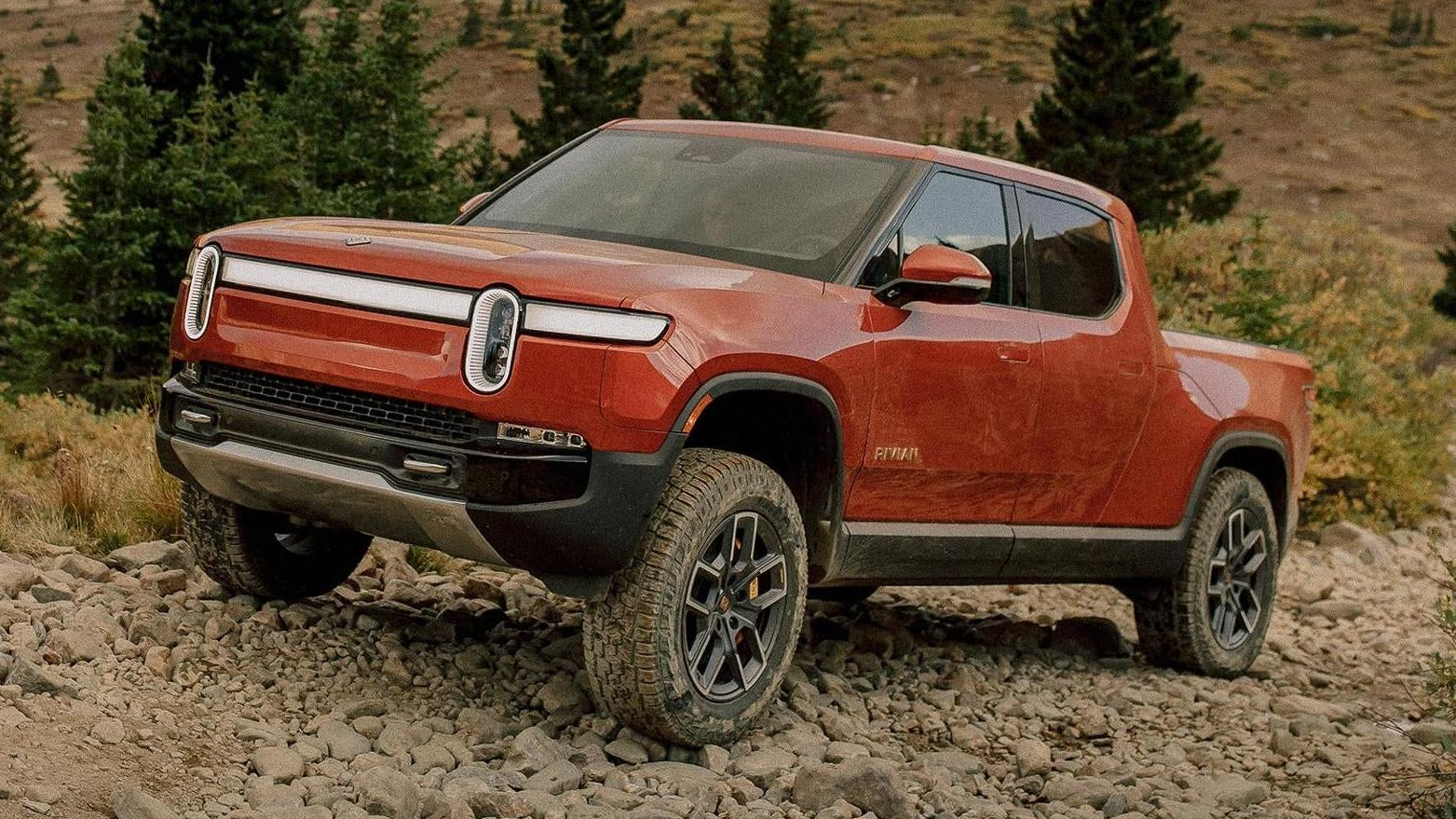Rivian Mad Senate Climate Bill Excludes Their $80,000 Electric Trucks
The company says the bill gives an unfair advantage to manufacturers like Tesla and General Motors
Rivian is not happy about the new Senate climate package for one big reason: its expensive-ass trucks cost too much to qualify for the $7,500 electric vehicle tax credit. Because of this, Rivian says the new bill would actually hurt the company and put it at a competitive disadvantage, according to Automotive News.
James Chen, vice president of public policy for Rivian, said the climate bill that was brokered between Senate Majority Leader Chuck Schumer and West Virginia Democratic Senator Joe Manchin would unfairly benefit rivals like Tesla and General Motors. Chen says those companies had more time to ramp up production or do some manufacturing overseas, thus their manufacturing costs are lower. That means they can sell vehicles at a lower price.
The way the new bill is currently constructed does away with the existing EV credit structure (the first 200,000 vehicles produced are eligible for the $7,500 credit regardless of price). In its place, the new bill would do away with the 200,000 unit cap. Instead, incentives would only apply to vehicles that cost less than $80,000 and for customers who make no more than $150,000 per year ($300,000 for couples).
A quick peek at the Rivian website reveals you would be hard pressed to find a car they sell for less than $80,000. Sure, the R1S and R1T both start under than mark, but not by much. Add a couple option and you are well past $80,000 on either rig.
While Rivian applauds the intention of the pending bill, "as currently drafted, this legislation will pull the rug out from consumers considering purchase of an American-made electric vehicle," said Chen, whose company employs roughly 6,000 workers at an assembly plant in downstate Normal. Though the company last week announced it was laying off 50 nonmanufacturing workers at the plant, Rivian still plans to hire more for manufacturing this year in Normal.
"The final package must extend the transition period to provide consumer choice and protect good-paying manufacturing jobs here at home," he added.
Chen also says the company is not even planning to offer a lower-priced vehicle until 2025.
Rivian has reportedly been in contact with Senate leadership and senators from states in which it has interests – like Illinois, Michigan, California and Georgia – to see if the bill can be amended to allow startups like Rivian to use the old rules.
